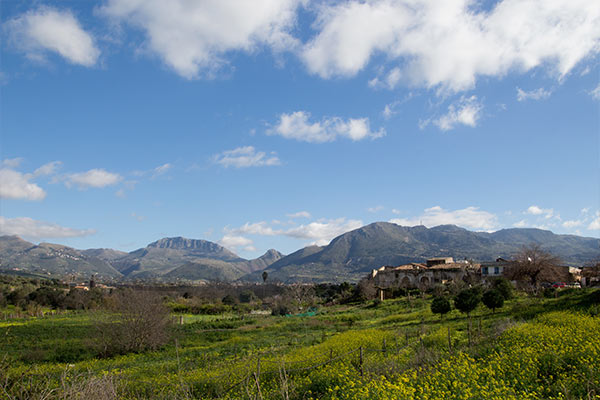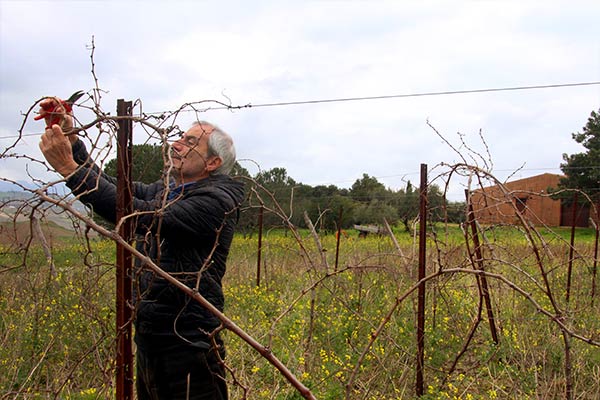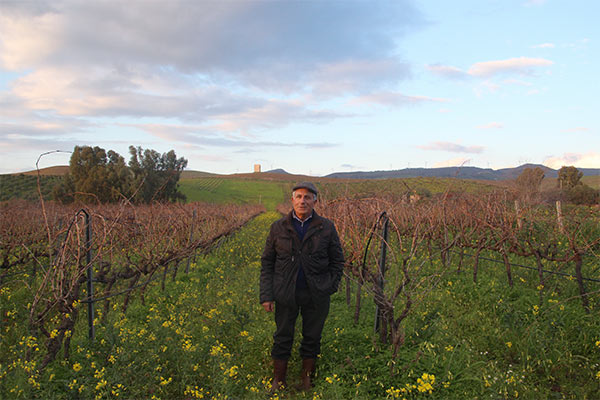Subtotal: $
Checkout-

Book Tour: Time for an Intervention
-

Hoping for Doomsday
-

Radical Hope
-

The Sermon of the Wolf
-

The New Malthusians
-

The Spiritual Roots of Climate Crisis
-

Tradition and Disruption
-

The Apocalyptic Visions of Wassily Kandinsky
-

War and the Church in Ukraine: Part 1
-

The Griefs of Childhood
-

Everything Will Not Be OK
-

Jesus and the Future of the Earth
-

The Other Side of Revelation
-

American Apocalypse
-

Syria’s Seed Planters
-

At the End of the Ages Is a Song
-

Searching for Safety
-

Stable Condition
-

Editors’ Picks: In the Margins
-

Editors’ Picks: The Genesis of Gender
-

Editors’ Picks: Sea of Tranquility
-

Poem: “Stopping By with Flowers”
-

Poem: “Sugarcane Memories”
-

Poem: “Sonnet Addressed to George Oppen, Arlington National Cemetery”
-

Diaconía Paraguay
-

Winners of the Second Annual Rhina Espaillat Poetry Award
-

Letters from Readers
-

Charles de Foucauld
-

Covering the Cover: Hope in Apocalypse
-

War Is Worse Than Almost Anything
-

The Last Battle, Revisited
-

The Problem with Nuclear Deterrence

A Haven of Olives
In Sicily, a forest blooms in confiscated mafia lands.
By Monica Pelliccia
June 4, 2022
Next Article:
Explore Other Articles:
On July 19, 1992, agronomist Carla Monteleone was at her mother’s place in Palermo, in northwestern Sicily. “Suddenly, we heard a terrible explosion. Then, the noise of the police helicopters and right away we knew what happened.” They were less than half a mile from the bombing that killed anti-Mafia judge Paolo Borsellino.
At the time Carla had four small children; she taught them that anti-mafia activism was a duty: “During the mid-’80s anti-mafia movement and after the Borsellino murder, I took part in all the demonstrations with my kids. I wanted them to become aware of the difference between good and bad.”
“We will never forget the images of those years,” explains her long-time friend, forestry engineer Antonino “Ninni” Conti. On May 23, 1992, Ninni was on the Palermo highway right after the attack that killed another famous anti-mafia jurist, Giovanni Falcone, and four others – he drove past the bomb crater on his way home. “For people of our age, anti-mafia became the focus of our activities,” says Ninni.
Thirty years later, Carla and Ninni have brought their ideas together into a collective project that combines agroecology and anti-mafia education. They are part of the NoE (No Exclusion) cooperative that manages twelve acres confiscated from the Vitale mafia clan in Contrada Parrini, a hamlet twenty-five miles from Palermo; the agroforestry system created here includes edible plants and fruit-bearing bushes and trees in combinations designed to recreate natural local patterns, reviving the ecosystem and generating agricultural income.
The project in Contrada Parrini was born thanks to the partnership of NoE and the agroecology farmers of Valdibella. Both cooperatives are part of Addiopizzo (Goodbye Payoffs), a Sicilian grassroots association that works to eliminate the culture of mafia influence and extortion in commercial activities.
The blooming of the common goods
Two white signs indicate that this is land confiscated by the mafia; a lane leads through the olive trees and typical succulent plants of Sicily.
Just a few steps ahead, a dog named Cavaliere is having a nap, and fluffy chickens scratch in the courtyard near the blue and white headquarters building where NoE and other associations organize socio-educational activities for young people, part of anti-mafia school trips.
“The presence of the mafia steals resources, work opportunities, assets: it concerns all of us. We want to educate better future citizens and highlight that being anti-mafia can benefit the entire society,” says anti-mafia operator Giovanni Abbagnato, who organizes educational tours here for students and teachers. “We try to make clear that this cancer affects all sectors, such as school and health: if you do not have adequate social services it is due to the mix of mafia, politics, and economics. [Expanding] this awareness makes ‘anti-mafia’ a common good for ordinary people and not just for activists.”

The food forest is covered by yellow wood sorrel flowers and surrounded by mountains. In the background, NoE headquarters is home to anti-mafia activities with students and teachers. Contrada Parrini, Partinico, Sicily, January 2022. All photographs courtesy of the author
But effective management of confiscated mafia assets – many of them in poor shape – collides with bureaucratic problems, slow administration, and difficult access to loans. A major hurdle at Contrada Parrini. “Over the years, we have overcome many bureaucratic obstacles to managing this land, first of all, to have access to the aqueduct,” adds Ninni. The confiscated land where the food forest is blooming is owned by Partinico municipality, dissolved for mafia infiltration, and currently managed by three women commissioners. Among the prickly pear “The field is divided into different sectors: each one with specific function and species,” explains ecologist Rafael Da Silveira Bueno, who designed the food forest project with Ninni Conti and Massimiliano Solano, president of Valdibella. Last spring, it came to life, helped by crowdfunding organized by the international platform Crowd Container.
“The food forest is composed of about an acre and a half of different fruit trees of seventeen ancient varieties typical to Sicily, that are more resistant to climate change. Among them are figs, mulberry, apples, and loquats to preserve agrobiodiversity and have a germplasm bank,” he continues. “Then there’s a subtropical area with passion fruit, cherimoya, and different avocados mixed with Mediterranean plants like citrus and olive trees, to avoid monoculture. On the valley top, there are oaks, useful as biomass, and a windbreak made of ash and laurels to protect the citrus grove. In the middle, there’s a bio lake that will be helpful for emergency irrigation and as a phytodepuration system.”
A zero-kilometer risotto
Today, Carla is hoeing the artichokes while Mohamed Mohamed works close to the avocados. Mohamed, nineteen, came from Somalia, to escape the civil war; now he is learning agricultural work in the cooperative, which has training programs for migrants and people with disabilities.
At the end of the morning, Carla collects a case of artichokes and brings it to Ninni, who prepares a risotto with artichokes for all the workers – as locavore as it gets. They discuss planning: what about selling passion fruit preserves? Planting more trees to diversify production? Expanding their markets?
“This is a dream that combines care for the environment and the struggle for legality: now we need to make it economically sustainable in the long term,” says Carla. “Without any doubt, the food forest is a crucial reply to people convinced that the mafia is the only way of life,” concludes Ninni.
Valdibella
A forty-minute car trip away lies Camporeale, headquarters of Valdibella, six hundred acres of “beautiful valley” cultivated by NoE’s partner in this project. Driving through the hilly countryside, surrounded by vineyards and almond trees, its president Massimiliano Solano, a passionate farmer since his childhood, points out where yellow strips – glyphosate-based herbicide lines – separate the organic farm from its neighboring conventional one.
“When I was ten, I saw my father and my uncle maltreated by agricultural commodity brokers close to the criminal underworld. The brokers threw most of our cantaloupes away; they only wanted the perfect ones. We were alone and voiceless and we had to accept their conditions,” remembers Solano. “This humiliation remained inside me and marked my way of working. Now, Valdibella is stronger thanks to its fellows and sells without mediators directly to consumers.”

Massimiliano Solano, president of Valdibella cooperative, pruning his vineyard. All the products of Valdibella are organic and marked with a sticker “No Pizzo” (No Payoff) that indicates the refusal of the mafia influence and extortion on their activities. Camporeale, Sicily, January 2022.
Agroecology, collective power, and overtly anti-mafia values are among the founding principles of Valdibella, founded in 1998 by a local Salesian religious community to give adolescents in its care agricultural work experience. Currently, Valdibella has just launched a one-year program to help local farmers realize a sustainable transition, respectful of the environment.
“Agroecology implies a value scale: the mafia cannot be accepted, it makes no sense. So, we demonstrated that an economy free of the mafia is possible: our work brings a strong social message,” declares Solano. “In our vision, an agroecological company part of the mafia could not exist because mafia brings negativity and devalues human relations. Who chooses agroecology works for collective benefits: an opposite experience than organized crime.”
The cross of light
Not far from Camporeale, in Contrada Macellarotto, the Cross of Light memorial dominates the valley.
The memorial was built by the family of local doctor Giuseppe Montalbano, murdered in a field near his home in 1988. Giuseppe was loved for his dedication to the community and known for his determined aversion to the mafia and every kind of oppression.
“The world collapsed on us. In the beginning, it was inexplicable for our family,” explains his son Luigi Montalbano, also a physician. “Someone thought they were ending something the day they killed my father. It was not like that. Thanks to my father’s ideas something different started,” explains Luigi, walking in the olive fields near the memorial.
“In Camporeale, my father worked to accomplish his dream: being a doctor for the ones who needed him and being a farmer respectful of the earth. A dream that we are carrying on with Valdibella, without the use of herbicides or chemical fertilizers.”
Other cooperative members also remember mafia threats. Pietro Scardino walks a kilometer on a muddy road to reach the vineyard. His boots sink in the mud after the unusual winter rains, part of Sicily’s extreme climate variability.

Pietro Scardino, part of the Valdibella cooperative, walks among the vineyards. During the ’90s, he had been threatened by the mafia, and his warehouse still bears bullet holes. Camporeale, Sicily, January 2022.
He arrives at sunset; the last orange and yellow rays illuminate rows of wine grapes and the warehouse that still bears the signs of intimidation. Rusty bullet holes and black spray-paint crosses cover the entire surface of the building.
“In the ’90s, I was working as a farmer and also as an employee in the municipality. At that time, I received various requests to reveal administrative information. Of course, I refused. Then, they cut my vineyard and left those signs on the building,” says Scardino, pointing at the black crosses. “We made no compromise,” he adds. “For sure, without being in the Valdibella cooperative, my activity would have closed.”
“For us, people who live here, at some points it was difficult not to have to deal with the mafia phenomenon. So, this was one point of departure, to gather together: we refused their influences and intimidations,” concludes Massimiliano Solano.
The food forest reinforces the message. “We received it as a wasteland and we are transforming it into a fruiting garden,” says Ninni Conti. “For us, using the land confiscated from the mafia for agroecology purposes and making them productive and economically self-sustainable is the best demonstration to carry the anti-mafia movement forward.”
Already a subscriber? Sign in
Try 3 months of unlimited access. Start your FREE TRIAL today. Cancel anytime.











































Alisha Bennett
Beautiful story!!! Thank you for sharing what these admirable people are doing.
Kelly McGarva
Wow! The images, the implications, the hope! Thank you for this As a regenerative farmer/rancher in the United States the parallels I’m drawing about the issues we face in agriculture today are breathtaking. It’s not always clear who our “Mafia” is - the roles and identities shape shift regularly.